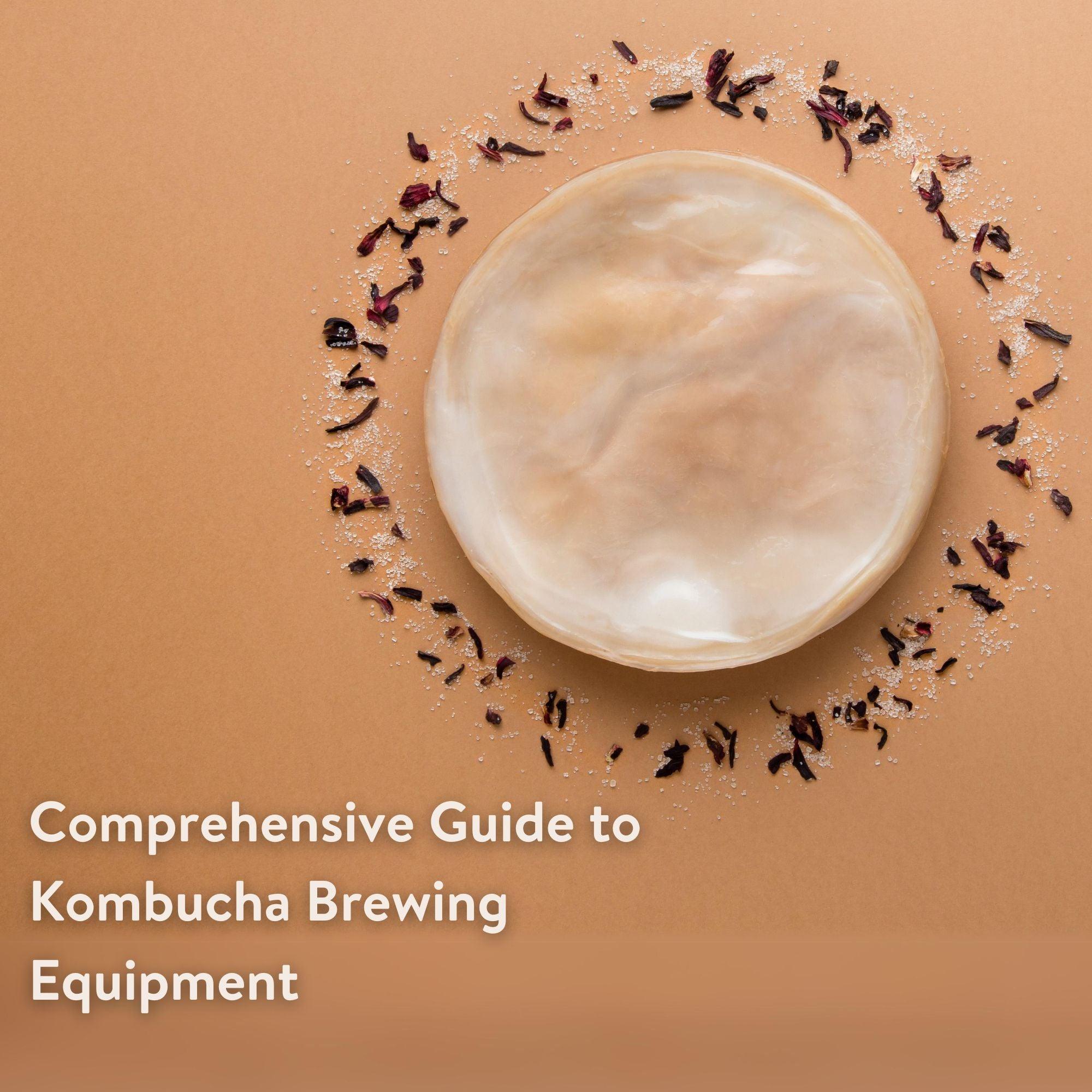Fermented products and dietary probiotics are two methods to increase the number of beneficial bacteria in your stomach. The most organic resource is fermented products. Probiotic supplements, that are often available in the market, should only be used to treat particular illnesses as prescribed by your doctor, and therefore are not suggested for daily usage.
Moreover, supplements are not regulated by the FDA in the same way that medicines are.
If you've not already, it's essential to add fermented foods into a daily meal. Fermentation is practiced to store foodstuff and minerals for hundreds of years. You might be surprised to find that you regularly consume a variety of fermented foods.
Since there is no suggested daily consumption for probiotics, it's impossible to determine which fermented products to eat and in what quantities. This blog has discussed the importance of Fermented Foods and Probiotics in your diet and their various health benefits.
What are fermented foods?
Fermented foods are produced through the enzymatic action of microorganisms in a controlled environment of time, temperature and humidity. Fermentation occurs when bacteria, fungus and other microbes decompose dietary components (such as carbohydrates like glucose) present in food to produce other compounds like acids or alcohols. Depending on the community of microbes in the food and the byproducts produced by them after fermentation, fermented foods acquire their distinct flavor, fragrance, texture, and color.
Fermented foods come in a wide range of flavors and textures, including:
- Yogurt And Cultured Milk
- Miso
- Wine
- Cider
- Kimchi
- Sauerkraut
- Beer
- Tempeh
Entire foodstuffs such as veggies, fruits, grains, dairy, poultry, seafood, eggs, beans, walnuts, and others can also be fermented. Since these products are healthy in their natural state, fermentation can provide extra health advantages, particularly when probiotics and prebiotics seem to be available.
What are probiotics?
Probiotics constitute the bacteria that is expected to be beneficial for your body, especially your gut. They are considered to be our allies in fighting off unwanted infections caused by the bad bacteria (pathogens), also present in the gut.
The most widely consumed probiotics include yogurt, kefir, kimchi, kombucha and sauerkraut. The effectiveness of probiotics is dependent on the strains present in the product that end up reaching the gut.
Another term closely related to probiotics is prebiotics.
Prebiotics are nutritional components that your body's gut bacteria consume to develop and thrive, resulting in health advantages. The oligosaccharides fructans represent the most widely recognized and investigated prebiotics with established beneficial effects in humans.
Prebiotics are found in certain vegetables and fruits, as well as legumes. Prebiotics, like probiotics, has primarily been linked to improving intestinal conditions. The Lactobacillus and Bifidobacterium are described as "healthy" or "nice" microorganisms for the gut. Probiotics are living germs or bacteria that enhance the individual body's wellness.
A few quick facts about probiotic microbial strains used and their benefits for the human body:
- According to researchers, several strains from frequently researched organisms, like Lactobacillus and Bifidobacterium, are thought to help the stomach by generating a more friendly intestinal condition.
- They all concluded that probiotics contribute to maintaining a robust immune system but that certain types are more efficient than others.
- Other significant benefits include improving system functioning and mood, although there is insufficient data to establish that all probiotics provide these advantages.
- Lactobacilli, for example, is a probiotic type that can be identified in yogurt and grows organically on the top of various foodstuffs, including vegetables and fruit.
- One should also note that not all fermented products, particularly those professionally manufactured items that remove bacteria through pasteurization, have probiotics.
What is the best way to consume probiotics?
Probiotics occur in supplement forms (packaged capsules) or naturally occur in fermented foods. In the case of supplements - use the probiotic precisely as directed on the package. It's usually one each day, and most individuals have it with meals. But because stomach acidity can impair the efficacy of certain type of probiotic strains, some dietitians recommend taking them post meals.
Supplement pills and packets are an easy method to boost beneficial bacteria in the digestive system, especially after medication or stomach illness.
Food is the greatest supply of probiotics if you want to consume them for a long time. Below is a listing of some bacteria-friendly foods:
- Yogurt is enriched with probiotics. Always look for a healthy yogurt that says "living cultures" on the package. Lactose-sensitive individuals should be able to eat this yogurt since the lactose has now been converted to lactic acid.
- Kefir is made from the milk of cows or goats. It has a sweeter flavor than yogurt, but it includes more beneficial bacterial cultures, so introducing just a teaspoon to organic yogurt can enhance the probiotics while leaving the taste the same.
- Sauerkraut is another bacteria-friendly food product. It is served as just a supplementary dish in little amount. If you do have an overactive thyroid, it's not a good meal to eat since raw cabbage might lower thyroid activity.
- Tempeh is made by fermented soybeans with the taste of nuts. It’s as good a source of proteins as a plant-based food can be.
- Kimchi is a popular pickle made of napa cabbage, the most common element, spiced with red chili, garlic, onion, and allowed to ferment. It's a rich source of gut-friendly Lactobacillus bacteria.
- Miso is a fermented bean mixture that is frequently used in soups. The taste has a subtle saltiness to it. It's a high-protein, high-fiber food.
What are the advantages of fermented foods?
1. These can help keep harmful germs out of your stomach.
You could say that a daily serving of yogurt keeps the harmful bacteria away from your body. Lactic acid bacteria are found in yogurt, kefir, and some sour pickles as just a byproduct of the fermentation procedure. Lactic acid bacteria are indeed a form of beneficial bacteria that lowers the acidity of the region in which they exist, leaving it less conducive to the growth of harmful bacteria such as those seen on kitchen utensils, raw chicken, and toilets seats. With a lower pH in the stomach, you're less likely to become ill by germs that cause illness.
2. These can stop bacteria from attaching to your gut
The bacteria found in your body lowers the level of acidity in the stomach to prevent harmful bacteria from developing, and it also stops harmful bacteria from clinging to the gastrointestinal tract's surfaces. The good bacteria struggle for the room with harmful bacteria like E. coli. Aggressive rejection is the fight that stops the harmful bacteria from staying there. It moves out of your system if it can't adhere to the surfaces of your stomach.
3. These provide your system with extra probiotics.
Probiotics could assist your system in various ways, including relieving stress, reducing digestive problems, and preventing infectious diseases. In addition, probiotics are critical for ensuring a healthy gut microbiota—the ratio of beneficial and harmful bacteria—especially throughout the stages of life when the ratio is most delicate, such as infancy and older ages.
4. These help to lower the chances of colon cancer.
This is because fermented products create a rise in intestinal butyrate that is necessary for nourishing and maintaining the integrity of the cells lining your digestive system. Butyrate effectively protects your intestines from contaminants and supports your body's natural detoxification process.
5. Act as an Immune system booster
Healthy bacteria in your gut, which build and boost the immune system, are supported by fermentation-friendly effects. Pathogens directly prevent sickness, whereas others encourage your immunity response to identify healthy and harmful bacteria.
Milk kefir is the most thoroughly examined foodstuff, and it may improve immune function. In addition, it has antibacterial characteristics, and research shows that it can help prevent bacterial illnesses in the gastrointestinal tract, particularly salmonella.
How can you increase your intake of fermented foods?
Fermented foods could look great, but the process is generally easy and inexpensive. It simply takes a few items and you'll save a considerable amount of money while also bringing diversity, fresh flavors, and unique tastes to your food. Cabbage, turnip, and carrots are among the best veggies to ferment at home since microorganisms growing on the top do the work for you.
Make your homemade pickled fresh veggies to enhance taste and add health advantages, using prebiotic-rich items like ginger and garlic. This is indeed a great technique to enjoy the advantages of fermented foods while also increasing your veggie intake. Although fermented foods are nutrient-dense, it is our whole nutrition that enhances our whole fitness.
So, are fermented foods beneficial to your health?
Fermentation has been practiced for centuries and is currently a common practice in numerous societies around the globe. The number of studies being done on the advantages of probiotic fermented foods is increasing, especially as their popularity grows.
Fermented foods can provide health advantages since microorganisms make them safe and improve their nutrient quality. For example, lactic acid bacteria and Bifidobacteria produce helpful compounds while keeping the atmosphere unfriendly for bacterial infections.
So, why should you consume fermented foods? These are perfect to include in a regular, nutritious diet since the probiotics they include are proven to give a range of health advantages, especially for the gut.



